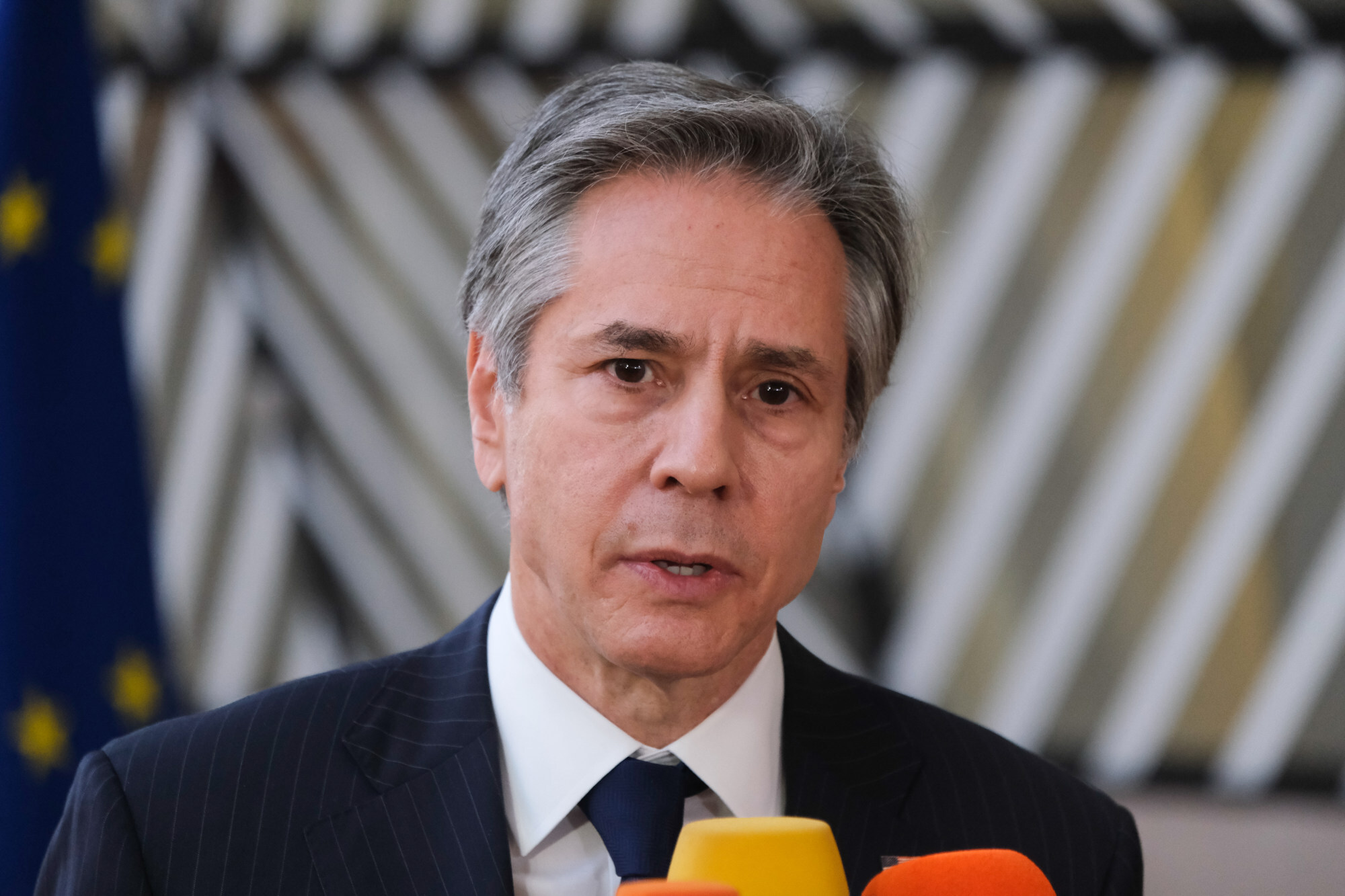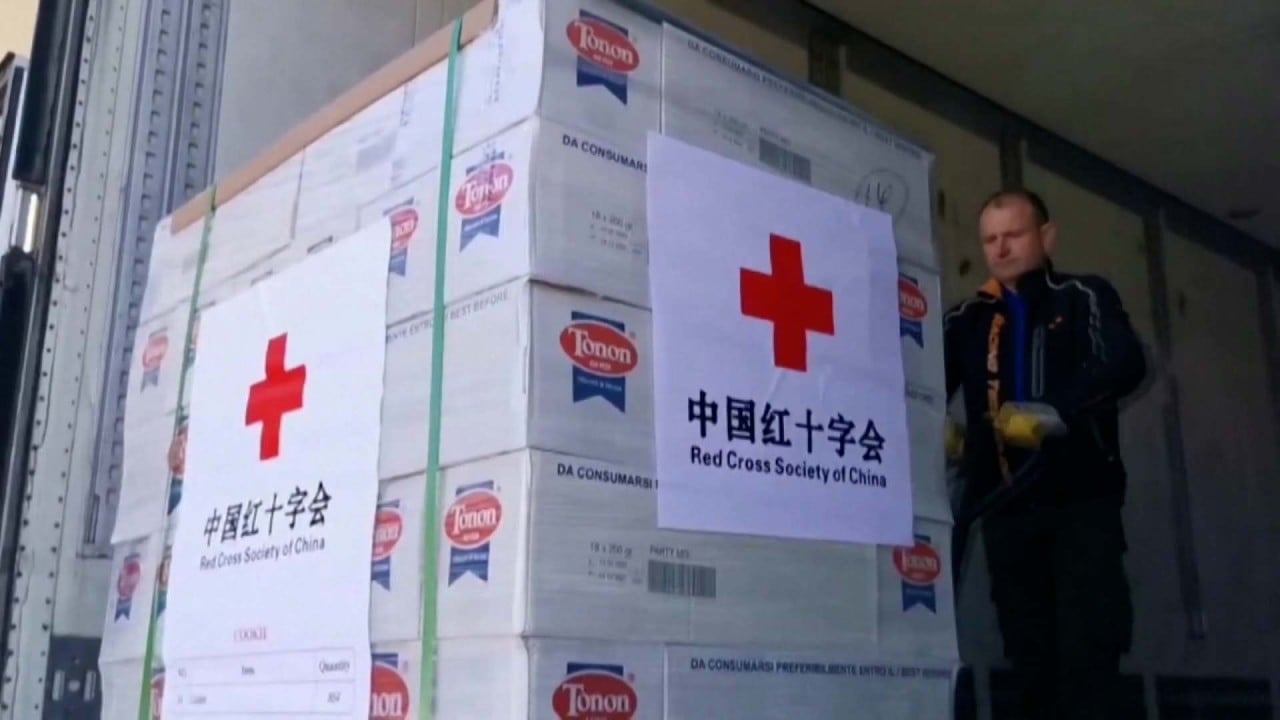
How US’ strategy to convince China to choose a side in Ukraine conflict could backfire
- If threatened, Beijing could impose its own sanctions on American companies and cut off critical access to manufacturing capabilities and its huge consumer market
- In a worst-case scenario for the West, Beijing could choose to fully support its strategic partner Russia and openly supply it with military and economic aid
In response to the crisis in Ukraine, the United States and its European allies have levelled unprecedented sanctions designed to isolate President Vladimir Putin and the Russian economy and inflict significant economic pressure.
However, bringing China on board with the West against Russia is not an easy task. Moreover, the US may not appreciate the outcome of its pressure if China does pick a side, or be prepared for the fallout.
US Secretary of State Antony Blinken and National Security Adviser Jake Sullivan have held several meetings with their Chinese counterparts since February 24, largely to ascertain what position China would take over the Ukrainian situation.
Wang also emphasised that “China is not a party to the crisis, nor does it want the sanctions to affect China”, which has become China’s primary position in dealing with the West as it continues to push for peace talks.

American and Western intelligence reports have been a key tool for exerting pressure on China. Before Russia’s invasion of Ukraine, Washington shared a report with Beijing stating that the invasion was imminent. This is the only report so far to have been verified and corroborated by the Chinese.
Nevertheless, the reports serve to insinuate that Beijing is a willing and complicit partner with Moscow and may isolate China on the world stage. They also serve to drive the perception among Americans of China as a major threat, a view now held by 62 per cent of the US population, compared to 48 per cent in 2018, according to a new Pew Research Center survey.
The US has also floated the possibility of sanctioning individual Chinese firms that are not cooperating with Western sanctions. This proposal was met with disdain in Beijing, which insists it is not a party to the Ukrainian conflict and therefore should not be affected by Western sanctions.
In Beijing’s eyes, this is a wholly European conflict caused by the US’ attempt to maintain power in the region. China has also threatened retaliatory sanctions against US businesses and individuals if any of its own firms are targeted.
Indeed, it has already sanctioned entities in the European Union – although this tactic has affected some Chinese firms that have chosen to comply with Western sanctions of their own accord or because of pressure from the United States.
The US’ strategy to convince China to choose a side (preferably the West’s) in this conflict could backfire in ways the Biden administration is unprepared for, especially against the backdrop of growing discomfort among Americans at China’s rising economic power.
Beijing, as mentioned, may impose its own sanctions against American companies such as Apple, and cut off critical access to China’s manufacturing capabilities. US firms could also risk losing access to the millions of Chinese consumers, a common threat for foreign companies.
Another strategy Beijing could deploy is to increase tariffs on all exports to the US, which could cause prices for everyday items to drastically increase at a time when American consumers are already suffering.
No legal basis for US to impose its hegemony on China over Ukraine
Finally, the worst possible outcome for the West is that China could choose to fully support its strategic partner Russia and openly supply it with military and economic aid.
While forcing China to isolate Russia would create a powerful economic deterrence to further warfare, it also comes with the risk of negative repercussions for the China-US economic partnership.
In negotiating with Beijing, Washington would do well to remember that China will always serve its own interests first. China’s leaders have already made it clear they wish to remain strategic partners with Russia but also maintain economic relations with the West.
James Hinote is a geopolitical analyst at CGPA Global Advisors. A graduate of Auburn University Harbert College of Business, he studied at East China Normal University in Shanghai
Earl Carr is founder and chief executive officer at CJPA Global Advisors and editor of the new book “From Trump to Biden and Beyond: Reimagining US-China Relations”. He is also an adjunct instructor at NYU’s Center for Global Affairs



